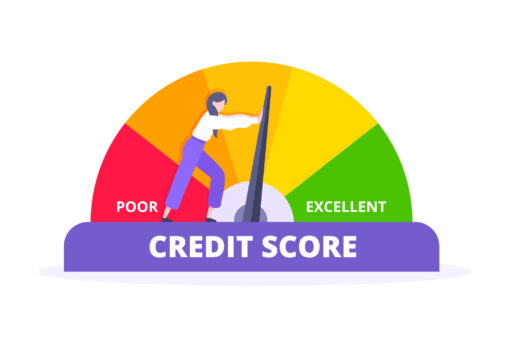
Filing for bankruptcy often brings a sigh of relief to those drowning in debt, offering a much-needed fresh start. However, it also presents a new challenge: rebuilding your credit. In California, as elsewhere, the impact of bankruptcy on your credit score can be significant, but it’s not the end of the road.
With strategic planning and disciplined financial management, it is possible to rebuild your credit and regain financial health. Here’s a comprehensive guide from The Law Offices of Paul Y. Lee on how to navigate this journey towards credit recovery. Contact us at 951-755-1000 for a legal consultation.
Understand the Impact of Bankruptcy on Your Credit
Bankruptcy can remain on your credit report for up to 10 years for Chapter 7 and 7 years for Chapter 13. Initially, it will significantly lower your credit score. Understanding this impact is crucial, as it frames the timeline and expectations for rebuilding your credit.
Step 1: Review Your Credit Report
Begin by obtaining a copy of your credit report from the three major credit bureaus: Equifax, Experian, and TransUnion. Ensure that all discharged debts are correctly reported as such and check for any inaccuracies. Disputing errors and ensuring your report is accurate is an essential first step in rebuilding your credit.
Step 2: Create a Budget and Manage Your Finances
Effective budgeting is the cornerstone of financial recovery. Outline your income and expenses, prioritize essential spending, and set realistic goals for savings. Living within your means and saving money are practices that will not only help in rebuilding your credit but also prevent falling back into debt.
Step 3: Start Rebuilding with a Secured Credit Card
One of the quickest ways to start rebuilding your credit is to obtain a secured credit card. This type of card requires a cash deposit that serves as your credit limit. Use it sparingly for small purchases and pay the balance in full every month. This demonstrates responsible credit usage and starts to build a positive payment history.
Step 4: Pay Bills on Time
Payment history is a significant factor in your credit score. Ensure that all your bills, not just credit card payments, are paid on time. Setting up automatic payments can help avoid missed or late payments. Consistently meeting your payment obligations indicates to creditors that you’re managing your finances responsibly post-bankruptcy.
Step 5: Consider a Credit-Builder Loan
Credit-builder loans are designed to help people build or rebuild their credit. Unlike traditional loans, you don’t receive the loan amount upfront. Instead, you make fixed payments to a savings account, and only after the loan term do you access the money. The timely payments are reported to credit bureaus, thus helping to improve your credit score.
Step 6: Diversify Your Credit
As you start to rebuild your financial foundation, consider diversifying your credit with different types of credit accounts, such as a retail store card, a small installment loan, or a gas card. Managing a mix of credit responsibly can positively affect your credit score. However, be cautious not to open too many accounts too quickly, as this can be seen as risky behavior by creditors.
Step 7: Monitor Your Credit Score and Report Regularly
Keep a close eye on your credit score and report. Monitoring your credit can help you understand how your financial behavior influences your score. Many credit card companies offer free credit score tracking to their customers, making it easier to monitor your progress.
Step 8: Be Patient and Persistent
Rebuilding credit after bankruptcy is a marathon, not a sprint. It requires patience, persistence, and disciplined financial management. Over time, the impact of the bankruptcy on your credit score will diminish, especially as you build new, positive credit history.
How California Bankruptcy Relief Can Help
At The Law Offices of Paul Y. Lee, we understand the challenges and opportunities that come with filing for bankruptcy and rebuilding your credit. Our team is dedicated to providing support and guidance as you navigate the path to financial recovery. Contact us at 951-755-1000 for more advice on managing your finances post-bankruptcy and taking the first steps towards a brighter financial future.
Rebuilding your credit after bankruptcy in California is undoubtedly challenging, but with the right approach, it’s entirely achievable. Embrace this fresh start as an opportunity to establish healthier financial habits, and over time, you’ll see your credit score—and your financial outlook—improve significantly.

